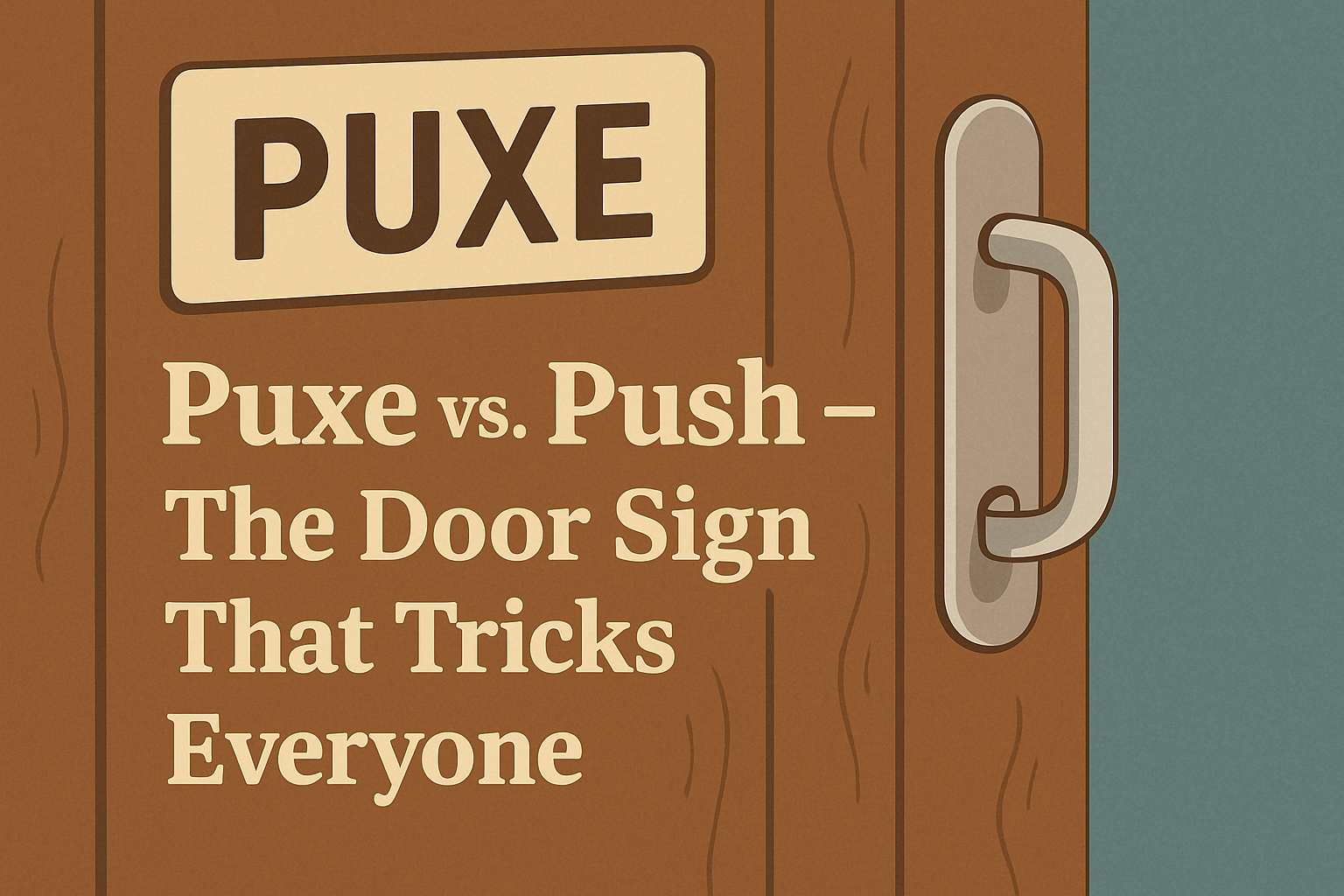
Common Pitfalls
Puxe vs. Push: The Door Sign That Tricks Everyone
If you’ve ever tried to walk into a Portuguese café and pushed a door marked puxe, you’re not alone.
Puxe looks a lot like push in English, but it actually means pull.
The Meaning of 'Puxe'
- Puxe = Pull
- Empurre = Push
So when you see puxe, you need to pull the door toward you.
And when it says empurre, that’s when you push.
Why This Is Confusing
The spelling of puxe (pronounced roughly “poo-shuh”) tricks English speakers into thinking it must mean “push”. It’s a perfect example of a false friend, a word that looks familiar but means something else.
Real-World Example
You’re standing in front of a shop door in Lisbon. You see a sign that says PUXE. You push. The door doesn’t budge. You try again. Still nothing.
Then someone behind you gently pulls the door open with one hand.
Embarrassing? Maybe. Common? Absolutely.
Final Thought
Remember: puxe = pull, empurre = push.
If it looks like it says push then you know it means pull!
It’s a small thing that makes a big difference and now that you know, you won’t forget it!
Stay tuned for more false friends and tips for decoding everyday Portuguese.